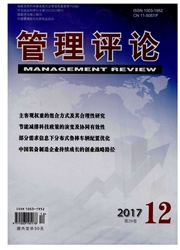

 中文摘要:
中文摘要:
分别构建基于BC、CSSW、KSS和BCE四种模型的我国房地产行业技术效率测算模型.并从技术非效率项的函数形式的角度.分析出KSS测算模型能够避免固定函数形式造成的技术效率估计偏差。运用我国31个省区2000—2010年的面板数据,实证研究我国房地产行业技术效率变动趋势,并进一步分析了房地产行业技术效率估计的内生性。研究表明:(1)KSS模型在内生性及技术非效率项处理上具有较好的完备性,是目前测算我国房地产行业技术效率较好的模型,蒙特卡洛仿真和实证研究结果也支持了这一结论;(2)资本投入是我国房地产开发企业快速增长进程中的核心要素,起着不可替代的作用;(3)我国房地产行业技术效率仍处于较为低下的水平,我国房地产行业技术效率的变动趋势呈现两个阶段,从2000年到2009年呈现整体上升的趋势,而从2009年到2010年呈现短暂的下降趋势。这说明以投资拉动增长的房地产发展模式在我国已遇到瓶颈。
 英文摘要:
英文摘要:
This paper establishes a time-varying technical efficiency of real estate industry with CSSW, CSSG, BC and KSS, and concludes that the KSS model is the best one. Based on the panel data of China's 31 regions during 2000-2010, this paper estimates the time-varying technical efficiency of real estate industry empirically, and then analyses the endogeneity. The result shows: (1) Considering the superiority in dealing with endogeneity and technical inefficiency, the KSS efficiency estimator is the relatively best, and the Monte Carlo simulation also supports this result. (2) Capital investment in China's real estate development enterprises in the process of rapid growth still plays an irreplaceable role. (3) China's real estate industry technical efficiency is still in relatively low level. China's real estate industry technical efficiency fluctuates in two stages: overall upward trend from 2000 to 2009, and transient decrease trend from 2009 to 2010. This suggests that the mode of investment-led real estate's growth in China has encountered bottlenecks.
 同期刊论文项目
同期刊论文项目
 同项目期刊论文
同项目期刊论文
 Incorporating Overconfidence into Real Option Decision-Making Model of Metal Mineral Resources Minin
Incorporating Overconfidence into Real Option Decision-Making Model of Metal Mineral Resources Minin 期刊信息
期刊信息
